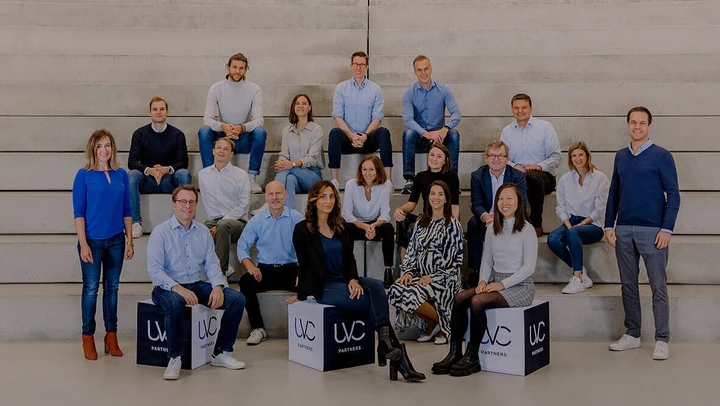
In their comprehensive study "Future made in Germany" of 2019, the investors Johannes von Borries of UVC Partners, Matthias Hilpert of MH2 Capital and Christian Meermann of Cherry Ventures compared the investments in new innovations of DAX companies over the last ten years. The findings are groundbreaking: DAX 30 companies spend 96% of their innovation budget on internal resources. Only 4% is spent on external innovations that bring about real change and long-term economic growth. We spoke with Johannes von Borries, Managing Partner at UVC, about the causes, effects and possible solutions.
Presented by
1. Why do German market leaders invest so much less in innovation than their international competitors?
First of all, we have to distinguish between internal and external innovations: When it comes to internal innovations, i.e. investments in their own product development, German companies are even in a very good position. But when it comes to investing in start-ups, for example, or even buying start-ups, they are very far behind their international competitors. One reason for this lies in Germany's history: the established companies themselves started out as start-ups and then grew over time. Especially in the automotive or engineering sectors, companies have learned from the very beginning that it makes more sense to do a lot of things themselves. This has worked well so far - we have really successful companies like BMW or Siemens in this country. But while good people used to hire from established companies, they are now going into start-ups. In the future, there will be a big gap here.
2. What lasting damage do companies suffer, when they miss opportunities and disruptive technologies?
This can currently be seen very clearly in the Corona crisis. Let's take a look at what's happening right now: Corporates - whether it's a company like BMW or Continental - are on the stock market and have to guarantee a positive cashflow. So they cut back their R&D activities very sharply and everything that is not close to the product is scrapped. This cuts off their opportunities for disruptive technologies, however they cannot implement those on their own. In economic terms, a real problem can arise for Germany if innovations are driven forward mainly in the USA or China. We hope, however, that innovations will increasingly be shifted to the start-ups, but of course this will require funding. After all, the big companies have to buy the technologies - and that is still the problem in Germany today. Google or Apple, for example, buy several (former) start-ups every year in order to remain innovative in the long term.
3. What can companies actively do to stay innovative?
It is important that the big companies do not lose contact with the start-ups. If they cut budgets, that is one thing - but they can still work with start-ups, as is possible here at UnternehmerTUM, for example with TechFounders.
In the study with best practices such as SAP, we showed that well-directed collaboration with start-ups (e.g. conducting pilot projects) is a good way to broaden your view of new innovations early on. These targeted activities do not yet require major investments or expensive projects that would only distract from the core business. In parallel, established companies should invest in venture capital funds that act as multipliers and market screeners. In this way, they will already be in contact when the corresponding start-ups later achieve sales in the relevant amounts and have more mature organizations. Only then will the start-ups have the necessary resources and processes to enable fruitful and sustainable cooperation with the large established companies. This might also lead to a complete takeover in several years. This is exactly what we are fostering with our study: Large companies don't have to get involved with start-ups directly as investors at an early stage, but should stay in contact with them - and this is made possible here at UnternehmerTUM by UVC or TechFounders, for example.
4. Is your team of UVC facilitator?
Definitely. Many well-known companies such as Daimler, Continental or Trumpf have deliberately invested with us in order to gain access to the start-up scene. With us, they experience first-hand what happens in the scene and can decide for a cooperation or direct investment at a later date. This is very attractive for the companies. For us it is again exciting to see what needs and problems established companies have.
5. Are we already on the right track?
Large companies have already set up units for this purpose that deal with exactly this kind of innovation work - and SMEs will have to go through a learning phase to keep up. All in all, we are already on the right track, and hopefully the Corona crisis will not deter us from doing so.
Thank you very much for the interview!
Here you can read up on the insights of the study.


